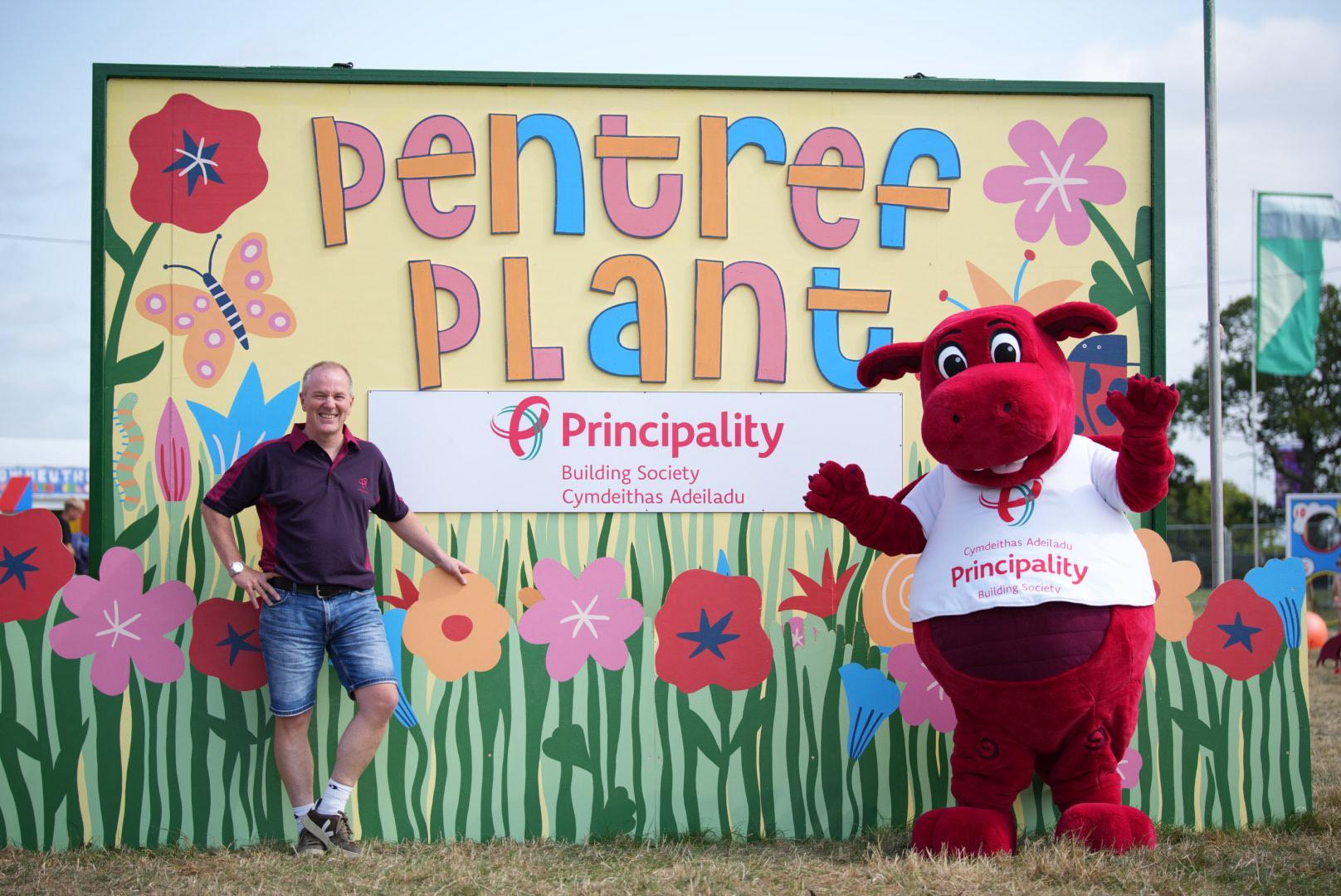Principality Building Society and the National Eisteddfod share a rich, intertwined history dating back to 1860
It’s a partnership rooted in heritage, culture, and community – and one that continues to thrive today.
For over 35 years, Principality has supported the Eisteddfod in celebrating and promoting Wales’ cultural traditions, language, and heritage.
Harri Jones, Interim Head of Brand, Impact & Communications at Principality, said they will be sponsoring the Children’s Village on the Eisteddfod field this year, with a variety of activities for children of all ages throughout the week:
“We’re proud to sponsor the Children’s Village this year at the Eisteddfod – a fantastic national event right on the doorstep of our Wrexham branch. Principality was founded in Wales in 1860, around the same time the first modern National Eisteddfod was organised to be held in Aberdare.
"The spirit of innovation, celebration, and connection to the Welsh language and culture that marked both our beginnings continues to drive us forward, and we’re committed to celebrating everything Wales has to offer. We’re excited to take part in all the celebrations, welcoming the best of our country, our heritage, and our rich culture. Our community activities also promote the Welsh language, and our colleagues have given a great deal of time and support to many events, sports teams, schools, and other community groups across Wales.”
Harri will be present on the Eisteddfod field in his professional capacity, but he’s also a regular visitor to the festival since childhood:
“I remember being on the Maes as a young boy, going with my Nain to the Principality tent and getting a very strong squash drink. It’s strange to think I now work for Principality,” he said.
But Harri’s family’s Eisteddfod background goes deeper than visiting tents on the Maes. His grandfather, Rowland Jones, won the Chair at the National Eisteddfod in Old Colwyn in 1941, and again in Dolgellau in 1949.
“He’s known as Rolant o Fôn, of course, and his name is on the trophy presented to the winning team in Ymryson y Beirdd. He was a member of the Anglesey poets’ team in the Ymryson for years and also served as a judge. His wit when adjudicating at national and local eisteddfodau was often a highlight of the literary competitions,” said Harri.
Harri is proud that the Chair his grandfather won in Dolgellau now has a place in his home in Montgomeryshire:
“Not far from where my grandfather was chaired, and not far from Wrexham either. But it’s strange to think the Chair was donated to the Eisteddfod by the Welsh Society of Hong Kong and transported all the way to Dolgellau. The Chair is made of hardwood and features the Red Dragon, the coat of arms of Hong Kong, and of Merionethshire. The other Chair is in my uncle’s house in southern England,” Harri added.
With assets of over £11 billion, Principality Building Society is the largest in Wales and the sixth largest in the UK.
“It’s a mutual society, which means it’s owned by its members rather than shareholders, and we now have over 500,000 members. After 165 years, we’re proud to have more branches on Welsh high streets than any other bank or building society.
"Across Wales, we have more than 50 branches and agencies. Member feedback is very important to us, which is why we recognise the value of our high street branches – because they tell us, when making financial decisions, that they prefer to speak to our team in person at the branch. Our knowledgeable teams in the branches are there to support our members every step of the way in life – whether saving for a deposit on a first home or planning for retirement,” Harri explained.
The high street locations also mean Principality is at the heart of community life, and its employees often take part in local activities through volunteering or fundraising for good causes.
“This extends to our colleagues too, where our Welsh Network – which includes more than 100 colleagues – will be taking part in the Eisteddfod this year. Created and run by our colleagues, the Welsh Network enables members to socialise in Welsh, practise the language, and learn about Welsh culture.
"There are weekly drop-in sessions, called Yr Ogof, where colleagues can join to speak or practise their Welsh, and there’s also a buddy scheme where fluent speakers and learners are paired to build confidence in using Welsh in the workplace. In addition to joining in the activities, we’ll be encouraging healthy saving habits in the next generation. We believe talking about money and finance doesn’t have to be daunting – and by taking a few simple steps, positive saving habits adopted early can stay with you for life.
"You’ll find us every day in the Children’s Village – our friend Dylan the Dragon will be there too to say hello, so be sure to drop by,” said Harri.

